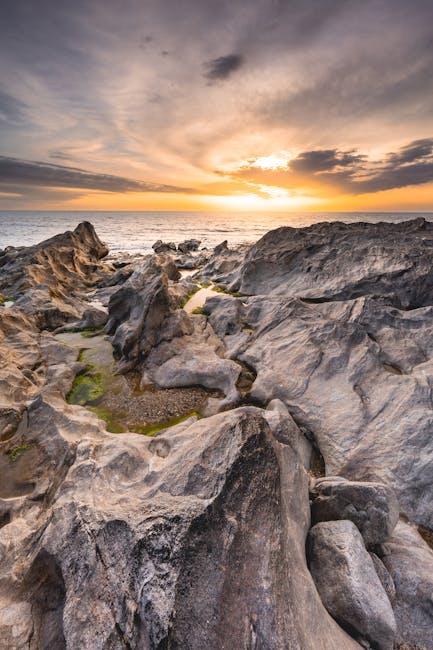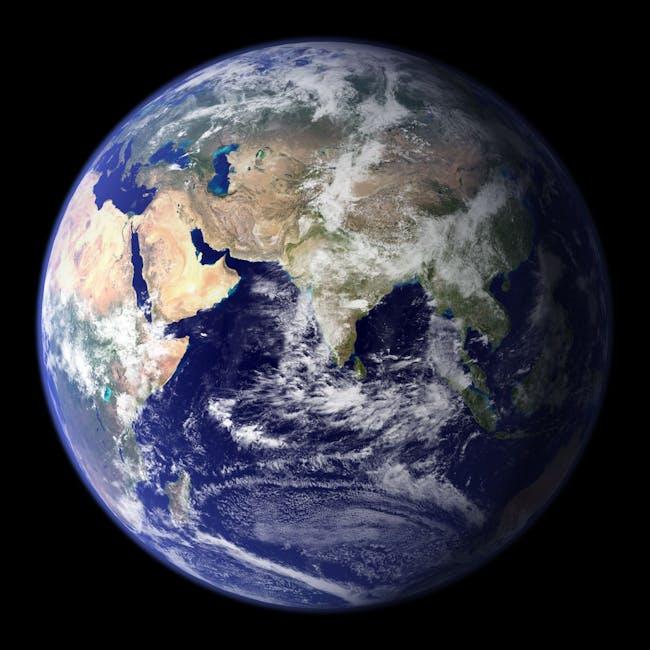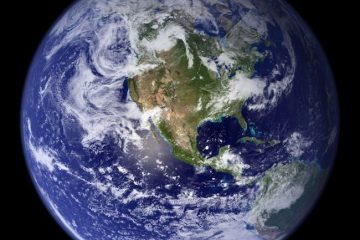In a world brimming with scientific theories and ecological concerns, the Gaia Hypothesis emerges as a captivating concept that treats Earth not merely as a planet, but as a living, self-regulating organism. This unique perspective delves into the intricate interconnectedness of all living beings on our planet, offering a fresh lens through which to view our relationship with the natural world. Join us on an exploratory journey as we unravel the mysteries and implications of the Gaia Hypothesis, inviting you to contemplate the profound unity that defines our existence on this magnificent blue orb we call home.
Table of Contents
- Unveiling the Intricacies of the Gaia Hypothesis
- Exploring Earth as a Living Organism
- The Interconnectedness of Life on Earth
- Nurturing Gaia: Practical Steps for Sustainable Living
- Q&A
- To Wrap It Up

Unveiling the Intricacies of the Gaia Hypothesis
The Gaia Hypothesis offers a captivating perspective on the interconnectedness of Earth’s biosphere and how it functions as a single, self-regulating organism. This intriguing concept suggests that the Earth and all its living organisms, collectively known as Gaia, work together to maintain the planet’s environmental conditions for optimal life support. This harmonious balance between life forms and their physical environment showcases the intricate web of relationships that make up Gaia.
Exploring the Gaia Hypothesis unveils a remarkable tapestry of interactions between living organisms and the Earth itself. The idea that the planet behaves as a unified, complex system highlights the profound influence living beings have on their surroundings and vice versa. By delving into the depths of the Gaia Hypothesis, we gain a deeper understanding of the profound interconnectedness that sustains life on our remarkable planet.
Exploring Earth as a Living Organism
The intricate networks of ecosystems on Earth intertwine like the veins of a living being, pulsating with vitality and interconnectedness. Within this vast web of life, every species, from the tiniest microorganism to the mightiest elephant, plays a crucial role in maintaining the delicate balance of the planet. By recognizing Earth as a living organism, we open our minds to the profound complexity and resilience of the natural world.
Just as a human body functions as a harmonious system of organs and cells, Earth operates as a cohesive entity where oceans, forests, deserts, and glaciers collaborate in a grand symphony of life. This holistic perspective urges us to cherish and preserve the planet as a sacred home, nurturing its biodiversity and safeguarding its well-being for future generations to come.
The Interconnectedness of Life on Earth
Living organisms on our planet form a complex web of connections, where each element plays a crucial role in maintaining the delicate balance of life. From the bustling forests to the depths of the oceans, every plant, animal, and microorganism interacts in a harmonious dance orchestrated by nature itself. The Gaia hypothesis proposes that Earth is a self-regulating organism, where all living beings are interconnected and influence each other’s existence in ways we are only beginning to understand.
In this intricate tapestry of life, a tree breathes out oxygen, sustaining the creatures around it, while a bee pollinates flowers, ensuring the continuation of plant species. The migration of animals across continents shapes ecosystems, spreading diversity wherever they roam. Just like a symphony, every species contributes its unique melody to the grand composition of Earth, highlighting the beauty and complexity of our shared existence. Let us marvel at the wonders of nature and cherish the interconnectedness that binds us all.
Nurturing Gaia: Practical Steps for Sustainable Living
In our journey towards sustainable living, embracing the Gaia hypothesis is paramount. By recognizing the interconnectedness of all living beings on Earth, we can take practical steps to nurture Gaia and promote a harmonious relationship with our planet. One fundamental aspect of this approach is to reduce plastic waste by opting for reusable alternatives such as stainless steel water bottles and cloth shopping bags.
Furthermore, embracing plant-based diets not only benefits our health but also reduces our carbon footprint significantly. By incorporating more fruits, vegetables, and legumes into our meals, we contribute to the well-being of Gaia and promote a more sustainable food system. Let’s strive to make conscious choices in our daily lives that honor the intricate balance of nature and support the vitality of our beautiful planet.
Q&A
Q: What is the Gaia Hypothesis and how does it treat the Earth?
A: The Gaia Hypothesis, proposed by scientist James Lovelock in the 1970s, suggests that the Earth functions as a single living organism. It views the planet as a self-regulating system where all living organisms and the environment interact to maintain a stable and balanced environment. This hypothesis treats the Earth as more than just a collection of individual organisms but as a complex, interconnected system where life and the environment are intricately linked and influence each other’s behaviors.
Q: How does the Gaia Hypothesis impact our understanding of the Earth?
A: The Gaia Hypothesis challenges the traditional scientific view of the Earth as a passive and inert rock in space. It emphasizes the dynamic interactions between living organisms and the planet’s geology, oceans, and atmosphere. By recognizing Earth as a living and self-regulating entity, the Gaia Hypothesis highlights the importance of maintaining ecological balance and harmony to sustain life on the planet.
Q: What are some criticisms of the Gaia Hypothesis?
A: Critics of the Gaia Hypothesis argue that attributing living characteristics to the Earth may oversimplify the complexities of ecological systems. Some scientists believe that the Earth does not exhibit the level of coordination and intentionality required to be considered a single living organism. Additionally, there is debate about the extent to which Earth’s self-regulating mechanisms actively work to maintain stable conditions.
Q: How can the Gaia Hypothesis influence our approach to environmental conservation?
A: The Gaia Hypothesis encourages a holistic view of the Earth, promoting a deeper understanding of the interconnectedness of all living beings and their environment. By recognizing the Earth as a self-regulating system, it underscores the importance of preserving biodiversity, reducing pollution, and mitigating climate change to maintain the delicate balance of life on our planet. Embracing the principles of the Gaia Hypothesis can inspire more sustainable practices and foster a greater sense of responsibility towards our natural world.
To Wrap It Up
As we delve into the intriguing concept of the Gaia Hypothesis and its profound implications for our understanding of Earth, we are reminded of the interconnectedness of all living beings on this remarkable planet. The idea that the Earth functions as a single, self-regulating organism challenges us to reevaluate our relationship with the environment and inspires us to nurture and protect this precious interconnected web of life. In a world where every action has a ripple effect, let us strive to be conscious stewards of Gaia, working together to preserve the delicate balance that sustains us all. Embrace the wisdom of the Gaia Hypothesis, and may it guide us towards a harmonious coexistence with the Earth and all its inhabitants.



0 Comments